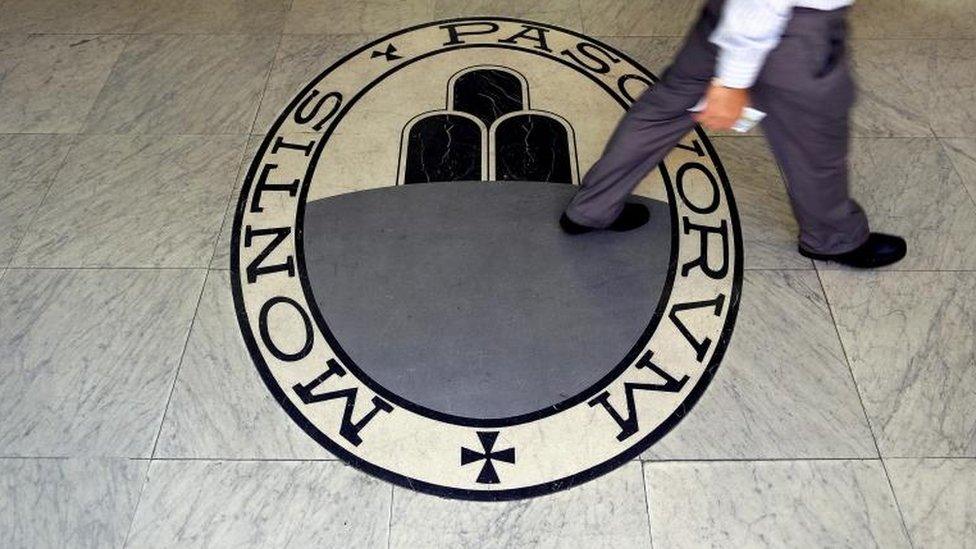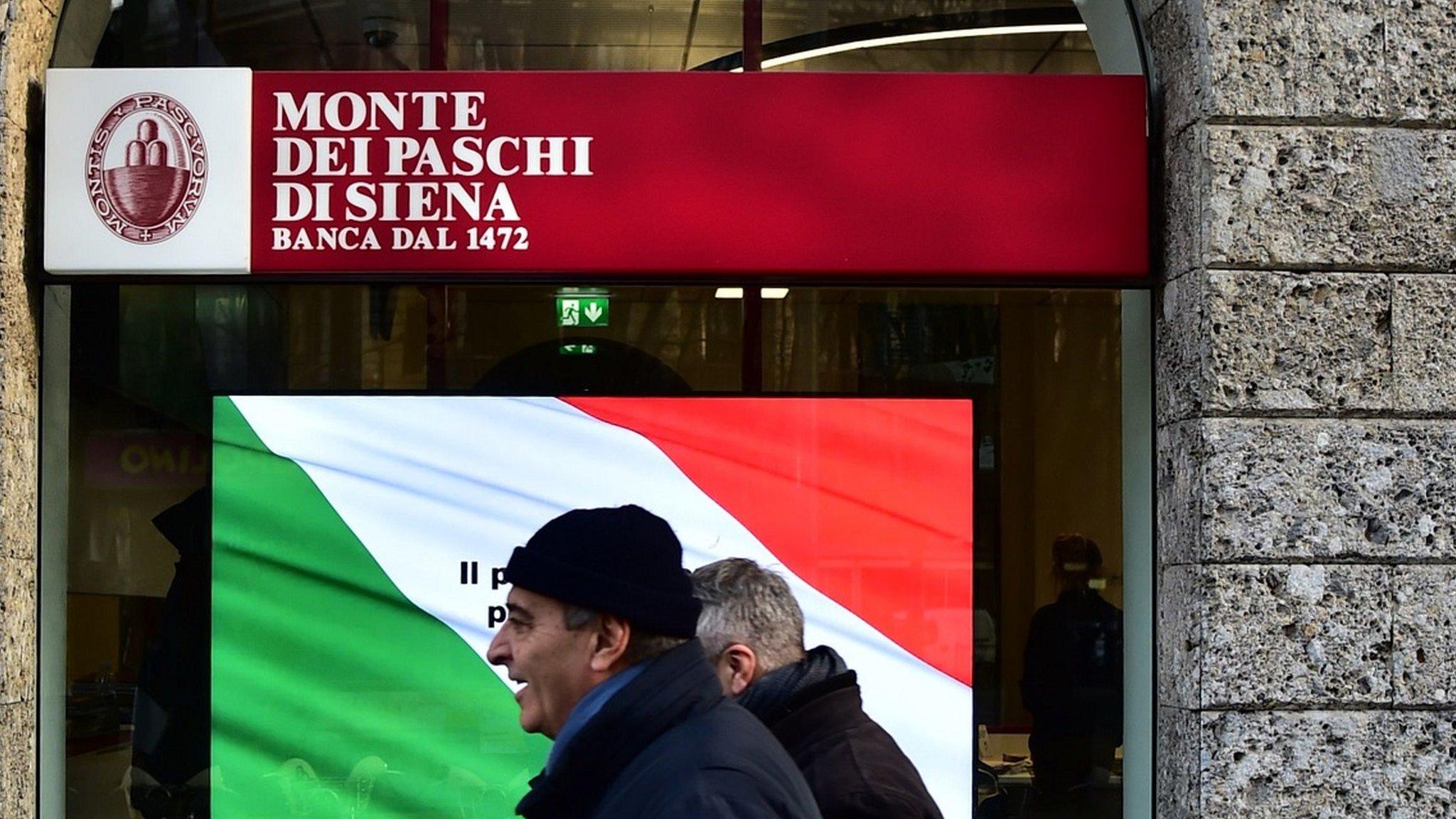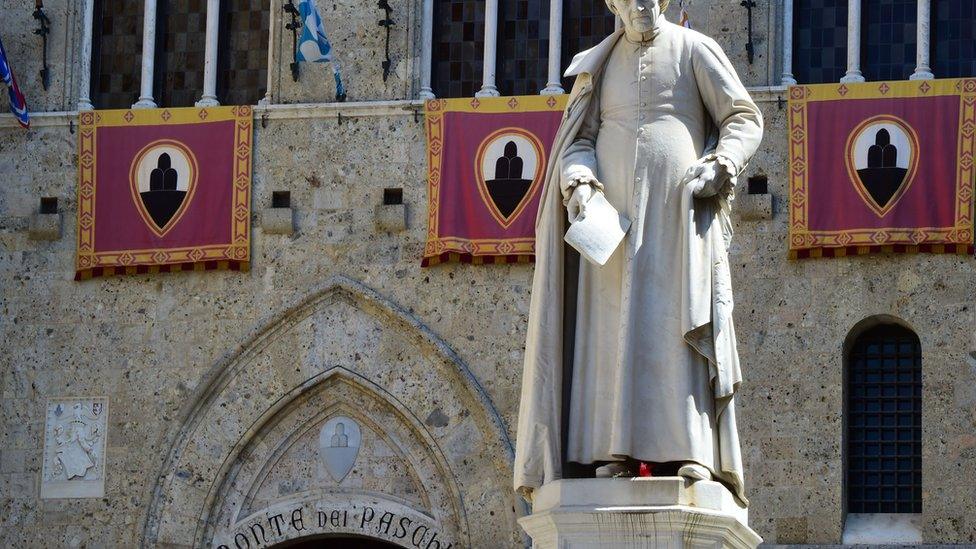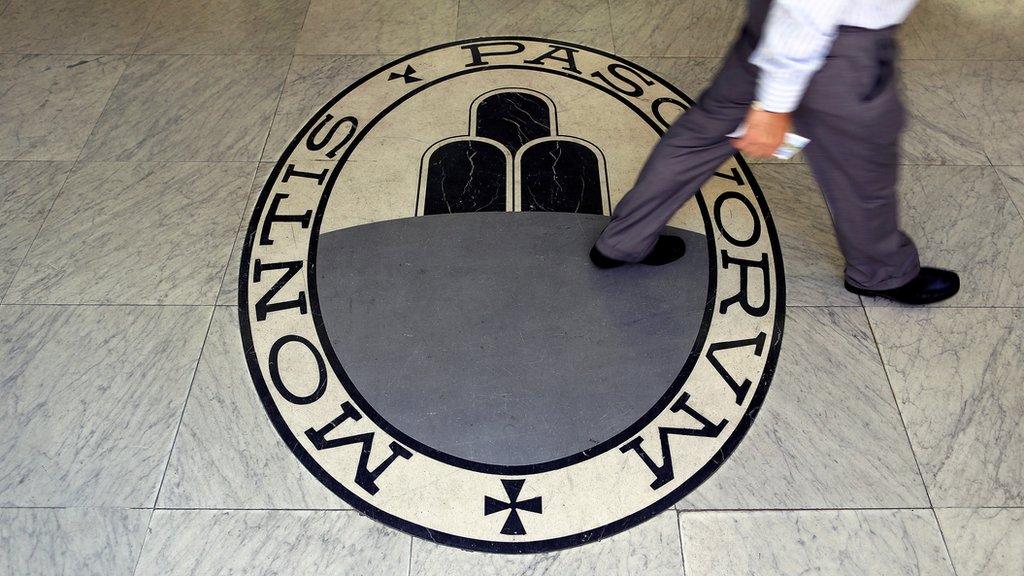Italy approves bailout for Monte dei Paschi
- Published

Italy's cabinet has approved a state-bailout for the country's third-largest bank, Monte dei Paschi di Siena.
Prime Minister Paolo Gentiloni said his government had authorised a €20bn ($21bn; £17.9bn) fund to support Italy's embattled banking sector.
The announcement came after Monte dei Paschi failed to raise €5bn from private investors.
The Italian bank said it would request a capital injection from the state to stay afloat.
Under new EU rules on bank bailouts, the bailout will entail a forced conversion of the bank's junior bonds - many of which are held by small investors - into shares.
'Full throttle'
A state bailout risks losses for thousands of ordinary retail investors, who are estimated to hold some €2bn of Monte dei Paschi's bonds.
However, the government will need to stick to new European Union rules designed to stop tax payers bearing the brunt of supporting weak banks.
Live reaction: Banks pay price for financial crisis
Italy's economy minister, Pier Carlo Padoan, said: ''This intervention will guarantee the capital requirement of Monte Paschi and will therefore allow the bank to proceed with its business plan, which European authorities will need to approve.
"It will be the third Italian bank which finally will return to operate at full throttle in support of the Italian economy and with the confidence of its savers and employees.''
The Italian parliament had already authorised the government to create a fund to prop up the banking sector.

Analysis: Theo Leggett, Business correspondent
A bailout for Monte dei Paschi was almost inevitable. The question now is how the government contains the political fallout.
The bank, which has been crippled by years of losses and loans that may never be repaid, could not be allowed to collapse. That could have triggered further failures in Italy, and potentially started a new European banking crisis.
But EU rules designed to protect taxpayers insist that banking investors now bear some of the costs of rescuing troubled lenders.
In Italy those who stand to lose money as a result include tens of thousands of ordinary savers. The government says they will be compensated.
Analysts warn that a failure to do so could provoke political unrest, potentially undermining the government, and playing into the hands of anti-establishment parties. It could also weaken other banks if savers rushed to withdraw their cash.

Founded in 1472, Monte dei Paschi is said to be the oldest surviving bank in the world.
It failed an EU stress test in July due to billions of euros of risky loans on its books, made to clients who cannot afford to repay them.
The situation has worsened since then.
On Wednesday, Monte dei Paschi revealed that it could run out of funds by next April, using up nearly €11bn.
Previously it had said it had enough funds to stay afloat for 11 months.
It added that by next May, it could burn through even more - €15bn in total.
- Published22 December 2016

- Published21 December 2016

- Published20 December 2016

- Published12 December 2016

- Published5 December 2016